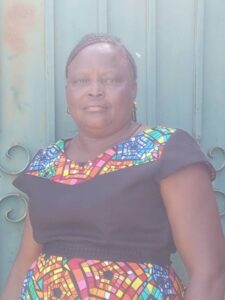
By Centre for Policy Development
Ghana, on Wednesday, February 24 2021 received 600,000 doses of AstraZeneca Covid-19 vaccine, made by the Serum Institute of India (Covishield). It is the first consignment of vaccines acquired through the Covid-19 Vaccine Global Access Facility (COVAX), which Ghana, among 92 countries, has signed unto. The government of Ghana, through its Ministry of Information, has stated that the first segment of the population that will receive from the 600,000 doses will be health workers, adults who are 60 years and over, people with underlying health conditions, frontline Executive, Legislature, Judiciary and their related staff, frontline security personnel, some religious leaders, essential workers, teachers and other personalities.
Upon the arrival of the vaccine in Ghana, the World Health Organisation (WHO) and the United Nations Children Emergency Fund (UNICEF), in a joint statement, noted that the path to recovery for Ghanaians can finally begin after a year of disruption due to the pandemic.
“This is a momentous occasion, as the arrival of the Covid-19 vaccines into Ghana is critical in bringing the pandemic to an end. The only way out of this crisis is to ensure that vaccinations are available for all,” they said. The 600,000 COVAX vaccines are part of an initial tranche of deliveries of the AstraZeneca / Oxford vaccine licensed to the Serum Institute of India, which represent part of the first wave of Covid vaccines headed to several low and middle-income countries. The two world bodies stated that the COVAX Facility intends delivering close to 2 billion doses of Covid-19 vaccines this year, which is an unprecedented global effort to make sure all citizens have access to vaccines.
Commitment
The Akufo-Addo government is targeting some 20 million Ghanaians for the Covid-19 vaccination programme which will be rolled out between March and October this year. The vaccination, which would be given to the entire population, will be done in three segments in which the Greater Accra, Ashanti and Western regions will receive priority because of the prevalence of the infection in these areas.
Through the National Vaccine Deployment Plan, the population has been segmented into four groups, and this will determine which section of the population gets vaccinated at a particular time. President Akufo-Addo in his 24th Address to the nation on Ghana’s enhanced response to the coronavirus pandemic, on Sunday, February 28 2021, said Group 1 is categorised as “persons most at risk and frontline State officials”. It includes healthcare workers, frontline security personnel, persons with underlying medical conditions, persons sixty (60) years and above, and frontline members of the Executive, Legislature and Judiciary. Group 2 is made up of other essential service providers and the rest of the security agencies. It includes water and electricity supply services, teachers and students, supply and distribution of fuels, farmers and food value chain, telecommunications services, air traffic and civil aviation control services, meteorological services, air transport services, waste management services, media, public and private commercial transport services, the Police Service, Armed Forces, Prisons Service, Immigration Service, National Fire Service, CEPS Division of the Ghana Revenue Authority, and other members of the Executive, Judiciary, and Legislature. Group 3 consists of the rest of the general public, that is all persons over eighteen (18) years, except for pregnant women. The final group, that is Group 4, will include pregnant mothers and persons under the age of eighteen (18), and they will be vaccinated when an appropriate vaccine, hopefully, is found, or when enough safety data on the present vaccines is available. Special arrangements will be made for persons with disabilities who fall within these groups.
The President has firmly assured that government will ensure that the newly approved Covid-19 vaccines are effective and safe for Ghanaians. The President has indicated his awareness of the anxieties relating to the safety and efficacy of newly-developed vaccines. “Government will ensure that the COVID-19 vaccines to be deployed in the country are effective and are safe. To this end, I have put together a team of experts, from the relevant institutions and agencies, who are working assiduously towards the procurement and deployment of the vaccines in Ghana,” he gave the assurance.
Covid-19 vaccines
Vaccine has been defined by the Centres for Disease Control and Prevention as a product that stimulates a person’s immune system to produce immunity to a specific disease, protecting the person from that disease. Vaccines are usually administered through needle injections, but can also be administered by mouth or sprayed into the nose. They mainly provide immunity and or protection. A research conducted by Civil Society Organisation, Kandifo Institute, disclosed that there are currently four different types of COVID-19 vaccines in clinical trials. These are the Whole Virus, Protein Subunit, Viral Vector and the Nucleic Acid (RNA and DNA).
The Whole Virus triggers an immune response and works either by using a weakened form of the virus that can replicate without causing illness or by using viruses whose genetic material has been destroyed so they cannot replicate but can still trigger an immune response. Examples of such vaccines used to fight COVID-19 are the Sinopharm and Sinovac vaccines. The Protein Subunit uses pieces of the pathogen (the disease-causing organism) to precipitate an immune response. This minimizes side effects but the immune response is weaker. An example is the Novavax. The Viral Vaccine works through giving genetic instructions to produce antigens. Examples are the Oxford-AstraZeneca and Sputnik V (Gamaleya Research Institute). Nucleic Acid vaccines use genetic materials, either RNA or DNA to provide cells with the instructions to make the antigen. No DNA or RNA vaccines have been licensed for human use yet. “Researchers have been studying and working with mRNA vaccines for decades. Interest has grown in these vaccines because they can be developed in a laboratory using readily available materials. This means the process can be standardised and scaled up, making vaccine development faster than traditional methods of making vaccines” (CDC, December 18, 2020). Pfizer-BioNTech and Moderna vaccines are examples of vaccines that use the RNA.
The WHO in a recent report released on February 18 2021 disclosed that there are about seven different vaccines across three platforms that have been rolled out in countries. It noted that vulnerable populations in all countries are the highest priority for vaccination. Currently over 200 additional vaccine candidates are in development, of which more than 60 are in clinical development. A release by the New York Times on 18th February 2021, as cited by Kandifo Institute, in their recent report, shows that 70 vaccines are currently under testing in clinical trials on humans. Twenty have reached the final stages of testing and at least 89 preclinical vaccines are under active investigation in animals.
Vaccine developers explain that there are three main phases to go through before a vaccine gets approved and authorized for use. There is a minor phase, the preclinical testing phase where the vaccine is tested on cells and given to animals. This is done to assess the immune response. The next phase, the Safety Trials phase, is then tried on a small number of people to test the dosage and safety of the vaccine and to confirm that it whets the immune system. The second phase, the Expanded Trials, is where the vaccine is tried on a larger sect of people, roughly hundred people, to see how the vaccine acts differently in them. This is to ensure safety. The final and third phase, the Efficacy trials is when the vaccine is tried on a much larger sect of people, thousands of people, to how many become infected, compared with volunteers who received a placebo. This is done so researchers and virologists can see if the vaccine is up to its task. After these phases are undergone, the vaccines are reviewed then plans for rolling out are made by the required authorities. As at January 2021, the Pfizer-BioNTech and the Moderna COVID-19 vaccines had been authorized and recommended by CDC. By February 15, 2021, WHO declared two versions of the AstraZeneca/Oxford COVID-19 vaccine ready for emergency use.
Vaccine in Ghana
A recent update on the UN-led COVAX Facility, of which Ghana is a participant, disclosed that the country is earmarked to take delivery of 2.4 million doses of the AstraZeneca vaccine which is licensed to the Serum Institute of India (AZ/SII). Ghana is among 145 counties listed to receive vaccines from a number of suppliers through the COVAX Facility according to the World Health Organisation (WHO). The AstraZeneca vaccine, co-developed with Oxford University and manufactured by the Serum Institute of India Ltd., is one of the most accessible, and, unlike other vaccines, they don’t need to be stored at frozen temperatures. WHO says, they can just be refrigerated, making them easier to distribute in less-developed areas. The country is expected to spend some $200 million on the vaccine. The country, however, plans to procure at least 17.6 million doses of COVID-19 vaccine by the end of June 2021.
The AstraZeneca vaccine is 76% effective. According to the WHO “Vaccination is recommended for persons with comorbidities that have been identified as increasing the risk of severe COVID-19, including obesity, cardiovascular disease, respiratory disease and diabetes. Although further studies are required for persons living with HIV or auto-immune conditions or who are immunocompromised, people in this category who are part of a group recommended for vaccination may be vaccinated after receiving information and counselling. Vaccination can be offered to people who have had COVID-19 in the past. But individuals may wish to defer their own COVID-19 vaccination for up to six months from the time of SARS-CoV-2 infection, to allow others who may need the vaccine more urgently to go first. Vaccination can be offered to breastfeeding women if they are part of a group prioritized for vaccination. WHO does not recommend discontinuation of breastfeeding after vaccination…People with a history of severe allergic reaction to any component of the vaccine should not take it. The vaccine is not recommended for persons younger than 18 years of age pending the results of further studies.”
Safety assurance
President Akufo-Addo, his wife the First Lady Rebecca Akufo-Addo, the Vice-President Dr Mahamudu Bawumia and his wife the Second Lady Bawumia were the first to publicly take their jabs on Monday March 1, 2021. Key public officials such as the Speaker and Members of Parliament, the Chief Justice and Justices of the Superior Court of Judicature, Chairperson and Members of the Council of State, the Chief of Staff and senior officials at the Office of the President, and prominent personalities like some Eminent Clergy, the National Chief Imam, the Asantehene, the Ga Mantse, and some media practitioners will also take the jab publicly today, Tuesday March 2, 2021.
This, according to the President, is “being done because the vaccine will help protect us against the impact of COVID-19 on our health. It is also a major catalyst to restoring livelihoods and the national economy to the robust level it belongs.” It is also to encourage everyone to avail him or herself of the opportunity to be vaccinated.
Reaction
The arrival of the vaccine in Ghana has been met with different reactions from different sections of the Ghanaian population. While some have lauded efforts by the government to move in some quantities of the COVID-19 vaccines in Ghana, others have expressed pessimism and scepticism.
A report by Ghana News Agency (GNA) disclosed that some Ghanaians are skeptical about the efficacy of the vaccine. The report noted that while some say they have not decided yet as to whether to take or not, others said they would not take it at all. A recent report indicated that health practitioners were nearly attacked by a community in Accra during a health talk exercise in a school. According to the report, residents in the area felt the health practitioners were trying to indoctrinate their children into accepting the Covid-19 vaccine. Comments on social media have also alleged that Covid-19 vaccines have been developed to reduce the country’s population. Others claim the vaccine causes genetic mutation and affect one’s sperms, while others say it is the mark of 666. Some say the vaccine will alter their DNA, while others believe it will embed a tracking device in their body.
Recommendation
The Centre for Policy Development (CPD), thus recommend that;
- There must be a well-planned sensitisation exercise led by health experts, traditional and religious leaders.
- The media should focus the attention of the discussion by engaging experts rather than politicians to speak on the matter.
- Religious bodies should continue and enhance the sensitisation of their members.
- Politicians, both from the ruling party and the opposition, must make themselves available to take the vaccine as a means of building trust in the vaccine.
- Local Authorities, including Assembly Members and Unit Committee members must be made to be a part of community sensitisation in collaboration with staff of the Information Service Department and the National Commission for Civic Education (NCCE).
- Identifiable groups, including community NGOs, women groups, youth groups, students’ associations among others must be engaged in the sensitisation of their members.
Conclusion
CPD-Ghana commends the government and the team leading the Covid-19 fight for a good job done so far. While commending the government, we wish to reiterate the caution by health experts that the safety protocols, announced by the WHO and the Ghana Health Service (GHS), still remain the surest means to reduce the spread. We cannot let our guard down until we are out of the woods. Experts say the more people get infected, the more the chances for a mutation of the virus to occur which means that the virus has a lesser chance to mutate when there is limitation in its spread.
Ghanaians must continue to wear the nose masks when going out of the house, ensure social distancing in public places such as markets, workplaces, schools etc by staying at least six-feet apart, or two arm lengths from other people. Avoiding crowds and poorly ventilated spaces. Wash hands regularly with soap under running water and or use the hand sanitizer frequently. Cleaning and disinfecting all surfaces must be done regularly. We must exercise, eat well, especially Ghana made foods, take enough rest and monitor health regularly. Most importantly, unless it is extremely important to go out, we urge Ghanaians to stay home.








